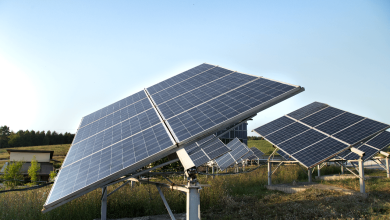Experts blame climate change as India’s Delhi goes from extreme heat to flooding in just 24 hours

Emerging from deadly temperatures that conveniently surpassed 50 degrees Celsius, Delhi residents are currently experiencing unprecedented rainfall that has caused an airport roof to collapse, flooded streets and triggered extensive chaos across the capital.
Delhi recently endured one of its hottest periods in history. But the city just received a staggering 228.1 mm of precipitation in just 24 hours. This amount surpasses Delhi’s average rainfall for the entire month of June.
The India Meteorological Department said the significant rainfall marked a 266% departure from the norm for this time of the year. Areas surrounding the Delhi airport alone received 148.5 mm of precipitation in just three hours on Friday, exceeding the 101.7 mm received last June.
Heavy Delhi rains leads to fatal airport roof collapse
The death toll in the unprecedented rainfall across Delhi has reached 10 as a couple of children lost their lives due to electrocution. Five people died on Friday and the bodies of three labourers have been recovered from the debris of a wall collapse earlier today.
The initial heavy rainfall of the season let to a fatal collapse of the airport’s roof, closure of metro stations, flight disruptions and extensive traffic congestion due to flooded streets and underpasses. It highlights the vulnerability of Delhi’s infrastructure to natural disasters.
Several residents have expressed frustration over the city’s drainage system’s ability to address such situations. The delayed onset of the monsoon and the sudden thunderstorms disrupted the region’s atmospheric patterns, bringing in relief from heat but also massive chaos.
Disasters becoming more frequent due to climate change
Experts have blamed climate change for the intensified rainfall. Sunita Narain of the Centre for Science and Environment told Reuters: “Due to climate change, extreme rain events are becoming more frequent, compressing annual rainfall into shorter periods.”
Experts feel that there is an urgent need for collective action as climate change leads to erratic distribution of rainfall, impacting both infrastructure and citizens. It is necessary to adapt infrastructure and policies to better address disasters fuelled by the climate crisis.
In order to mitigate future risks, experts have recommended enhancing Delhi’s water storage capacity through the creation of lakes and ponds, clearing canals and drains to prevent flooding, and increasing public awareness about the impacts of climate change.



